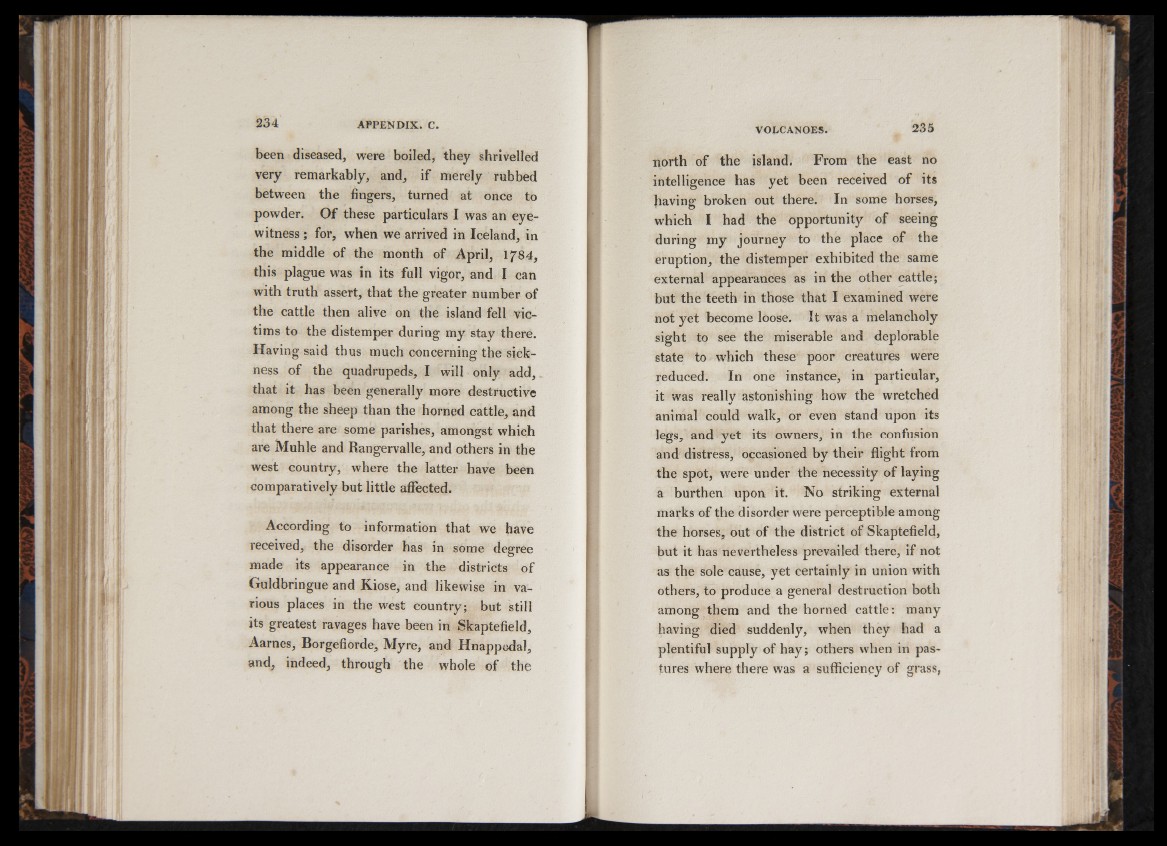
been diseased, were boiled, they shrivelled
very remarkably, and, if merely rubbed
between the fingers, turned at once to
powder. Of these particulars I was an eyewitness
; for, when we arrived in Iceland, in
the middle of the month of April, 1784,
this plague was in its full vigor, and I can
with truth assert, that the greater number of
the cattle then alive on the island fell victims
to the distemper during my stay there.
Having said thus much concerning the sickness
of the quadrupeds, I will only add,
that it has been generally more destructive
among the sheep than the horned cattle, and
that there are some parishes, amongst which
are Muhle and Rangervalle, and others in the
west country, where the latter have been
comparatively but little affected.
According to information that we have
received, the disorder has in some degree
made its appearance in the districts of
Guldbringue and Kiose, and likewise in various
places in the west country; but still
its greatest ravages have been in Skaptefield,
Aarnes, Borgefiorde, Myre, and Hnappedal,
and, indeed, through the whole of the
north of the island. From the east no
intelligence has yet been received of its
having broken out there. In some horses,
which I had the opportunity of seeing
during my journey to the place of the
eruption, the distemper exhibited the same
external appearances as in the other cattle;
but the teeth in those that I examined were
not yet become loose. I t was a melancholy
sight to see the miserable and deplorable
state to which these poor creatures were
reduced. In one instance, in particular,
it was reallv astonishing how the wretched •i o
animal could walk, or even stand upon its
legs, and yet its owners, in the confusion
and distress, occasioned by their flight from
the spot, were under the necessity of laying
a burthen upon it. No striking external
marks of the disorder were perceptible among
the horses, out of the district of Skaptefield,
but it has nevertheless prevailed there, if not
as the sole cause, yet certainly in union with
others, to produce a general destruction both
among them and the horned cattle: many
having died suddenly, when they had a
plentiful supply of hay; others when in pastures
where there was a sufficiency of grass,